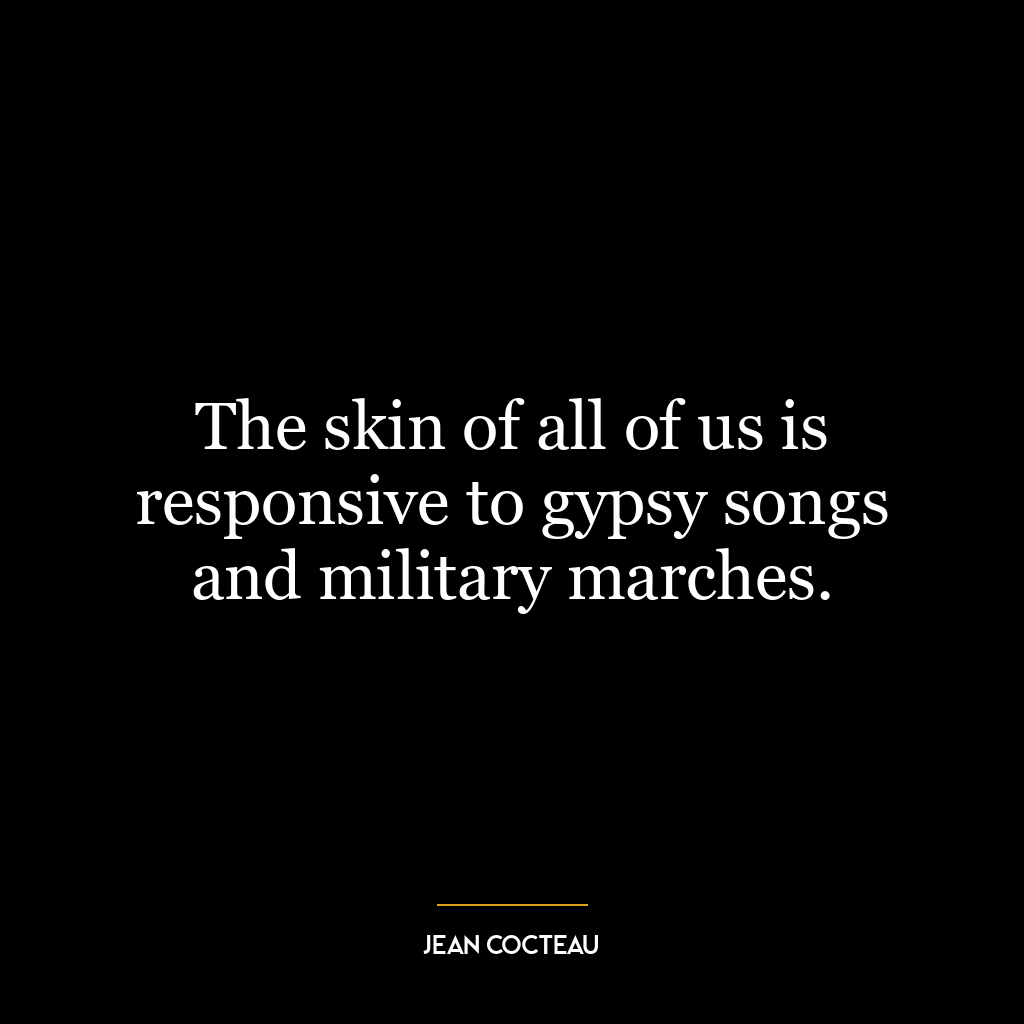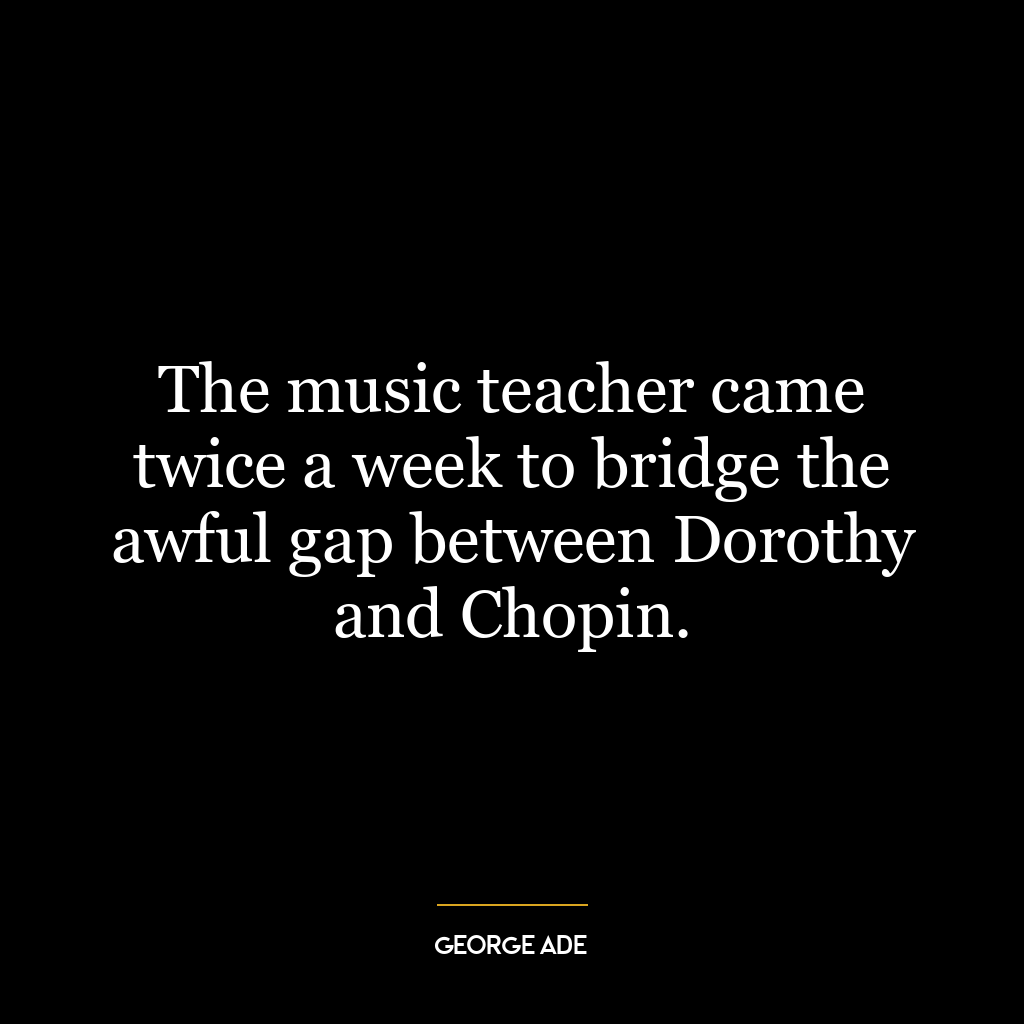Ah, music, sacred tongue of God! I hear thee calling and I come.
This quote is a powerful testament to the spiritual and transformative power of music. It suggests that music is a divine language, a sacred communication tool used by a higher power to reach out, connect, and guide us. The phrase “I hear thee calling and I come” implies a sense of surrender and obedience, highlighting the irresistible pull and influence of music.
Music, in this context, is not merely a form of entertainment, but a spiritual experience, a medium through which divine messages are conveyed. It is a universal language that transcends cultural, racial, and social barriers, capable of touching the soul and eliciting profound emotional responses.
This idea can be applied in today’s world in various ways. In personal development, music can be used as a tool for self-expression, self-discovery, and emotional release. It can help individuals connect with their inner selves, evoke deep-seated emotions, and stimulate personal growth and transformation.
Moreover, in a world characterized by division and conflict, music can serve as a unifying force, promoting peace, understanding, and mutual respect among different cultures and societies. It can bridge gaps, break down barriers, and foster a sense of unity and shared humanity.
In a therapeutic context, music can be used as a form of healing, helping individuals cope with stress, anxiety, and other mental health issues. It can provide comfort, solace, and a sense of belonging, making people feel understood and less alone in their struggles.
In essence, this quote is a reminder of the profound power and significance of music in our lives. It invites us to listen, to open our hearts and minds to the divine messages conveyed through music, and to let it guide us towards growth, healing, and unity.






